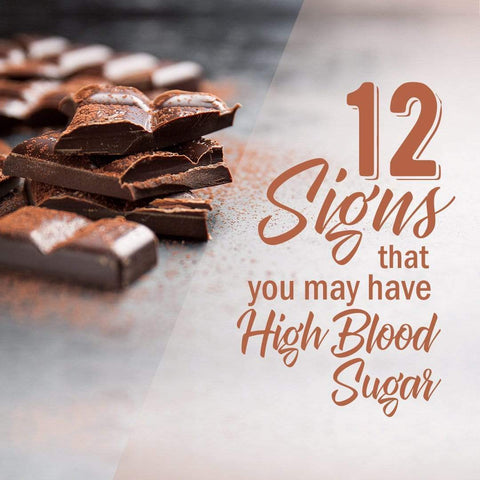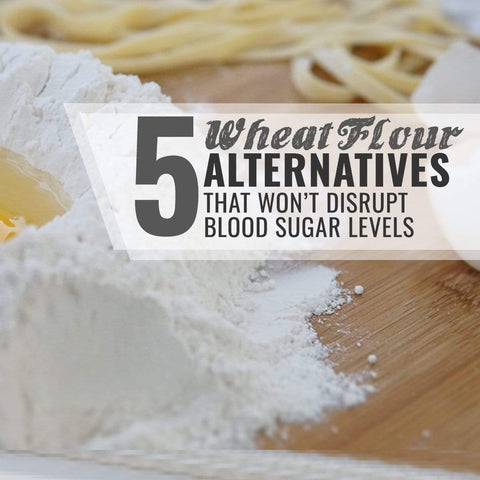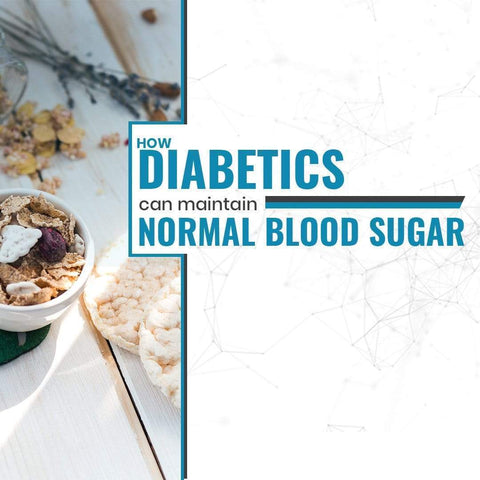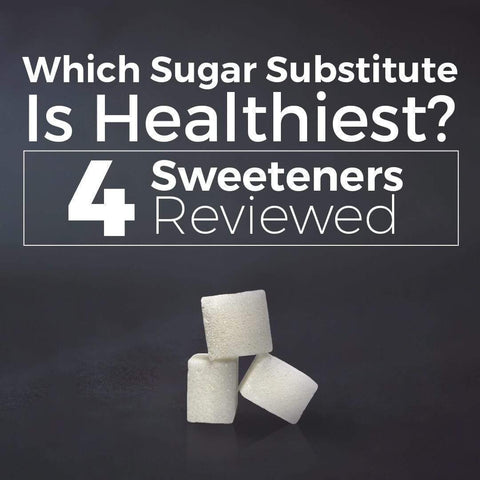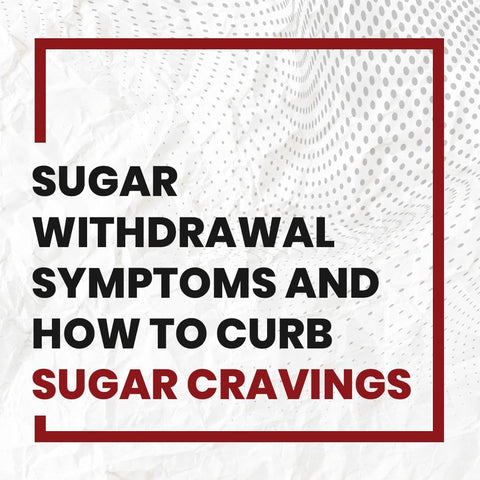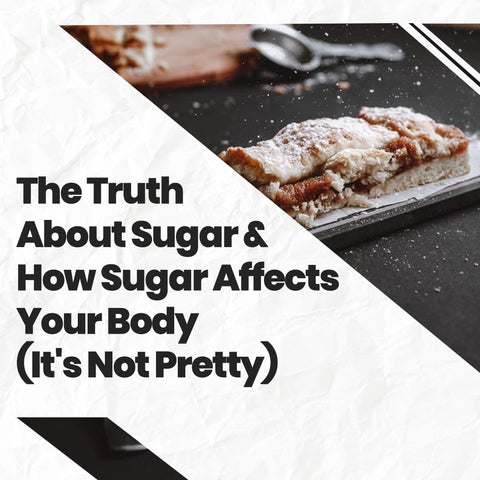
Type II diabetes is caused by the chronic elevation of glucose and insulin in your body.
When your blood sugar is too high, your body produces a lot of insulin in order to remove the sugar from your blood and put it into your cells for usage.
Unfortunately, you become numb to the effects of insulin because your cells are exposed to too much of it. The result is your blood sugar tends to be chronically elevated because insulin is no longer able to do its job of removing sugar from your blood. (This state of poor health is known as insulin resistance.)
Fortunately, what you put in your mouth largely determines your blood sugar levels and whether or not you become insulin resistant.
What to NOT Eat if You Have Diabetes
Healthy whole plant foods like vegetables, fruits, nuts, seeds, and whole grains help keep your blood sugar levels even and out of the high range.
The foods below, however, are bound to elevate blood sugar, promote insulin resistance, and keep you under the spell of diabetes.
1. Large quantities of meat

Maybe you’ve been told that carbs and sugar are the only things responsible for raising blood sugar and insulin. They aren’t!
The amino acids in protein also require insulin to be delivered to cells, and large portions of meat can spike insulin. Meat consumption is associated with higher fasting glucose and insulin 1,2. Harmful substances in cooked meat called advanced glycation end products can also interrupt insulin’s action. And low-carbohydrate diets that are heavy in meat have been evidenced to decrease insulin sensitivity 3.
When red meat is added to a meal, glucose spikes even higher than similar carby food with no meat 4.
Exclusive Bonus! Download the FREE report ‘19 Ways to Naturally Balance your Blood Sugar Levels (Even If You LOVE Carbs)’ by clicking here.
2. White bread
White bread is made of grains that have had their fiber removed. This is not good news for your blood sugar levels because the fibers slow down sugar absorption from the grains.
With whole grains, you get a milder rise in blood sugar, but with refined grains like white bread, your blood sugar spikes, leading to high blood sugar and high insulin.
3. Soft drinks

Soft drinks containing high fructose corn syrup are a problem for diabetics in many ways.
For starters, plenty of research has correlated sugary drink consumption with type II diabetes 5. Soft drinks are also linked to obesity because the surges in insulin they cause lead to weight gain 6. Insulin promotes weight gain by the storage of fat.
High fructose corn syrup also worsens a side effect of diabetes: having high levels of fat in your blood 7. In addition, soft drinks impair the body’s ability to effectively metabolize sugar 7.
4. Pastries
Sugary starchy foods like cupcakes, cinnamon rolls, muffins, and others are a double hit of sugar. The starch in them is broken down into sugar, and these treats have plenty of added pure table sugar. The combination makes for a high dose of sugar!
5. Saturated fat (beef, butter, pork)

Saturated fat is a dense form of fat that may contribute to insulin resistance 8. Healthier unsaturated fats like those found in nuts, seeds, avocados, and olives have been shown to promote lower insulin levels 9.
Researchers put it this way:
“The evidence suggests that replacing saturated fats ... with unsaturated (polyunsaturated and/or monounsaturated) fats has beneficial effects on insulin sensitivity and is likely to reduce risk of type II diabetes” 9.
6. Fried foods
Fried foods are full of trans fatty acids that come from the processed vegetable oils used to make the crispy coatings.
Trans fats raise bad cholesterol and, like saturated fats, are linked sometimes with insulin resistance 9.
Vegetable oils like soybean oil, corn, oil, and canola oil can be artificially hydrogenated, rendering them trans fats. These oils are then sometimes used in chips, doughnuts, cookies, margarine, and cakes.
7. Fruit juice

Don’t consume very much fruit juice if you have diabetes. Stick to eating whole fruit or blending fruit instead.
Whole fruit, unlike fruit juice, still contains its fiber, which slows down sugar absorption. Fruit juice contains no fiber.
While fruit juice shouldn’t be as bad for your body or blood sugar as soft drinks, its best to stick to the whole food, the way nature created it. Granted, fruit juice does contain some antioxidants, but you’re still consuming a lot of sugar when you drink a full glass.
8. Cereal

There are many types of cereal. Some healthy ones are made of nuts, seeds, and whole grains and have almost no added sugar. But many mainstream cereal brands are made from refined grains with lots of sugar added.
Like pastries, the mix of refined starch and added sugar wreaks havoc on your body!
9. Desserts
Desserts will not put your health on a good path. After a meal, the last thing a diabetic (or anyone) needs is to add extra sugar and fat that your body doesn’t need.
Let’s be honest, desserts are decadent. You don’t need them.
10. Dried fruit

Dried fruits have much of their water content removed. This means that the natural sugars in them are delivered to you in a more concentrated way.
With the water missing, these compact little fruit bites will go down your throat easily, and you might not realize how many you’re eating. Pretty soon, your blood sugar will be climbing, and you’ll have eaten an unnatural amount of fruit.
11. White rice
White rice is another processed grain that causes a surge of sugar in your blood when you eat it. Rice naturally has bran that contains fiber, nutrients, and antioxidants, but white rice has had all these good things removed. You’re left with starch without really any fiber to slow down the sugar absorption.
Do you have high blood sugar but LOVE carbs?
Want to do something about it without giving up all the foods you love?
You can help balance blood sugar levels within the normal range naturally using a variety of safe, effective natural remedies.
Click here to download the brand new FREE report by nutritionist Evan Burns. You’ll learn how you can still enjoy many of your favorite foods—including carbs—without causing your blood sugar to spike!




